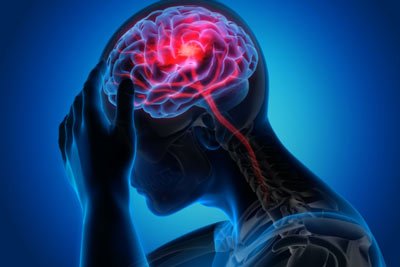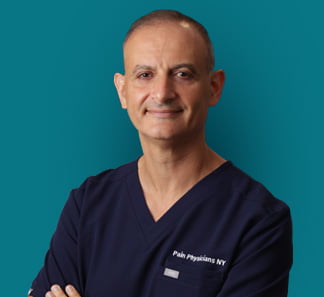When chronic tension headaches keep you from enjoying and participating in a full life, seek help from pain doctors experienced in diagnosing and treating every chronic tension type of headache. Relying on the most advanced diagnostic equipment and an interventional, multidisciplinary approach to treating pain, the doctors at pain management in New York offer positive solutions to improve your quality of life.
Most people battle headaches at some point in their lives. Your headaches may run the gamut from an annoying sinus headache to debilitating migraines. Tension headaches are especially aggravating because many doctors don’t have a good understanding of their causes or what kind of chronic tension headache treatment will work best for your specific discomfort.
Although chronic tension headaches are the most common type of headache, effective treatment can be difficult. So rely on pain management doctors at pain management center New York to receive a proper diagnosis for the chronic tension type headache you have and the most appropriate headache treatment. The best treatment plans combine medications, healthy habits and other non-drug options to find the right blend for your needs.
Symptoms of Chronic Tension Headaches
Tension headaches are categorized as either episodic or chronic. Episodic headaches last 30 minutes to a week for fewer than 15 days a month, while chronic headaches last hours or are continuous for more than 15 days a month. Chronic tension type headaches also exhibit symptoms that include:
- Tightness or pressure across your forehead, down the sides and across the back of your head
- Dull, aching pain
- Scalp tenderness
- Neck pain with shoulder muscle involvement

There is a difference between tension headaches and migraines. Most people don’t suffer from one or the other, but from some combination of the two. Tension headaches usually don’t have visual disturbances or nausea. But stress does seem to aggravate or trigger chronic tension headaches.
Also, being active often makes migraine pain worse, but it doesn’t affect tension headache pain. Interestingly, while activities and foods can trigger or aggravate migraines, the causes of chronic tension headaches are relatively unknown. Some doctors claim that muscle contractions due to stress or tension cause them, but research hasn’t proven this. The latest research seems to suggest that those who deal with chronic tension headaches may have a heightened sensitivity to pain.
Chronic Tension Headache Treatment
Your top pain management specialist in Manhattan specializes in the most comprehensive, modern treatment options for your chronic tension type headaches. After assessing your physical health, your symptoms and type of pain, your pain doctor takes your medical history. He may have to rule out other contributing health conditions with imaging tests and blood work.
Depending on what methods you’ve already tried using to treat your chronic tension headaches, your doctor may suggest a combination of treatments that may include:
- Acute pain medicines, including over-the-counter pain relievers, prescription pain medications, some combination of medications, or triptans for those who suffer a combination of chronic tension headaches and migraines
- Narcotics, but only in rare cases
- Preventive medications that may include anticonvulsants, muscle relaxants and tricyclic or other antidepressants — which can take some time to become effective, so be patient when working with these medications
- Trigger point injections, which help block shoulder and neck muscle pain
- Retaining or recovering good posture techniques to relieve strain for the highly sensitive muscles of your neck, shoulders and upper back
- Heat or cold, whichever works best for your pain
- Alternative medicine techniques, such as therapeutic massage or acupuncture
- Finding and maintaining a good support system, whether through an understanding family, a therapist or available support groups
At-Home Options for Treatment of Chronic Tension Headaches
As you begin to gain control over your chronic tension headaches, your NYC pain management doctor helps you implement a prevention treatment plan. Prevention not only helps you feel more in control of your chronic tension headache pain, but it also keeps you from building tolerance to medications. Interventional prevention steps include:
- Cognitive behavioral therapy techniques to manage stress and rephrase thought patterns that can aggravate pain, tension and stress
- Monitoring your rest and sleep to ensure you get enough, but not too much
- Learning how to use biofeedback techniques to lower stress responses, such as blood pressure and heart rate
- Ceasing smoking
- Regular low-impact exercise
- Proper diet with regular meals and balanced nutrition
- Relaxation techniques such as meditation, yoga and breathing techniques
- Plenty of water intake
- Reducing alcohol, sugar and caffeine consumption
As you learn to manage your symptoms, your pain doctor in Midtown monitors your progress and modifies your treatment plan as needed. Finding the best tools for living with chronic pain keeps it from adversely affecting your life, your work, your quality of life, your relationships, and your overall health and well-being. Talk to doctors who understand what you’re going through.

Boleslav Kosharskyy, MD, is a top-rated, best-in-class interventional pain management doctor. He is board-certified in Anesthesiology, Interventional Pain Medicine, and Palliative Care.
Dr. Kosharskyy is an Associate Professor of Anesthesiology and Rehabilitation Medicine at Albert Einstein Medical College. He’s also the Associate Medical Director of Pain Medicine and Director of Anesthesia for the Joint Replacement Center at Montefiore Medical Center and Albert Einstein Medical College.
He is an active member of the American Society of Anesthesiology (ASA), the American Society of Regional Anesthesia and Pain Medicine (ASRA), and the New York State Society of Anesthesiologists (NYSSA)
